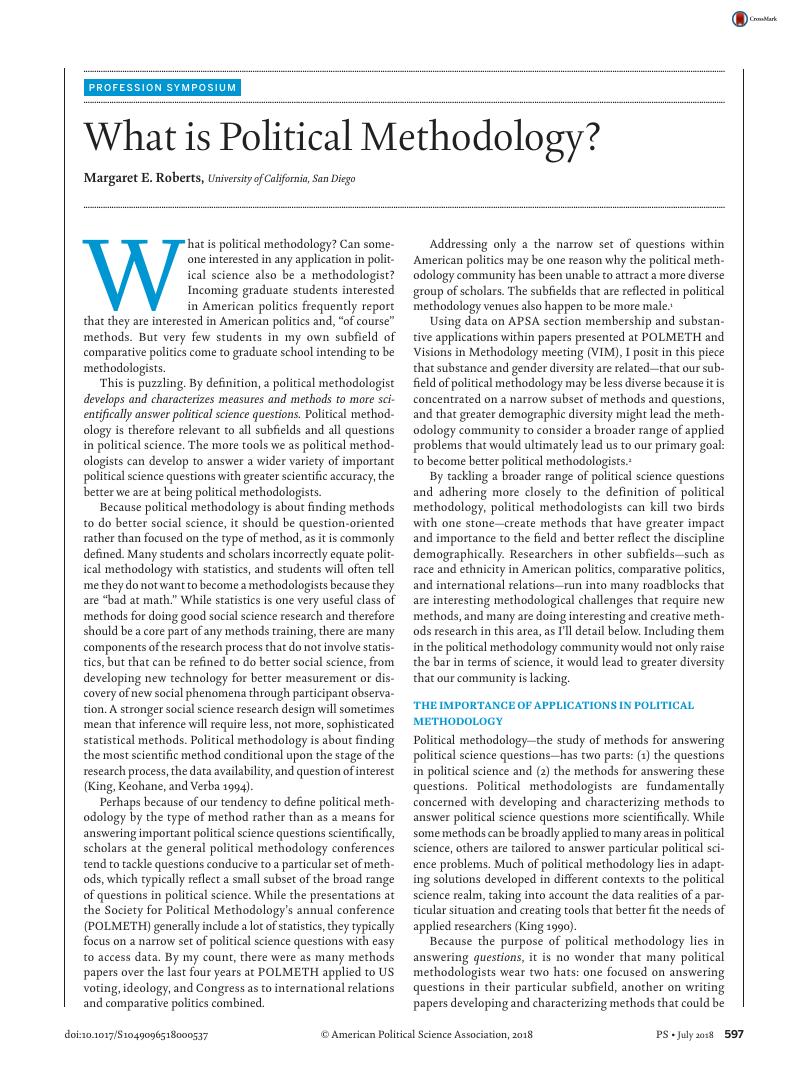Crossref Citations
This article has been cited by the following publications. This list is generated based on data provided by Crossref.
Matthews, Morgan C.
2019.
Developments in gender and U.S. politics: A call for intersectionality.
Sociology Compass,
Vol. 13,
Issue. 7,
Гаман-Голутвина, Оксана
2019.
Преодолевая методологические различия: споры о познании политики в эпоху неопределенности.
Полис. Политические исследования,
p.
19.
Harbridge-Yong, Laurel
and
Sin, Gisela
2020.
A MESSAGE FROM THE GUEST EDITORS.
PS: Political Science & Politics,
Vol. 53,
Issue. 2,
p.
299.
Saraceno, Joseph
2020.
Disparities in a Flagship Political Science Journal? Analyzing Publication Patterns in the Journal of Politics, 1939–2019.
The Journal of Politics,
Vol. 82,
Issue. 4,
p.
e45.
Bauer, Kelly
2021.
The Palgrave Handbook of Political Research Pedagogy.
p.
151.
Zorn, Christopher
2021.
The Palgrave Handbook of Political Research Pedagogy.
p.
323.
Webb, Clayton
and
Jordan, Soren
2022.
Avoiding, and Learning From, Mistakes Made by Junior Scholars Teaching Political Methodology.
PS: Political Science & Politics,
Vol. 55,
Issue. 1,
p.
236.
Collins, Neil
Sharplin, Elaine
and
Burkhanov, Aziz
2023.
Challenges for Political Science Research Ethics in Autocracies: A Case Study of Central Asia.
Political Studies Review,
Pernia, Ronald A.
2023.
Causal inference in political science research: global trends and implications on Philippine political scholarship.
Asian Journal of Political Science,
Vol. 31,
Issue. 3,
p.
306.
Olabanjo, Olusola
Wusu, Ashiribo
Afisi, Oseni
Asokere, Mauton
Padonu, Rebecca
Olabanjo, Olufemi
Ojo, Oluwafolake
Folorunso, Olusegun
Aribisala, Benjamin
and
Mazzara, Manuel
2023.
From Twitter to Aso-Rock: A sentiment analysis framework for understanding Nigeria 2023 presidential election.
Heliyon,
Vol. 9,
Issue. 5,
p.
e16085.





